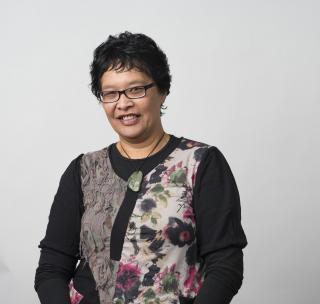- Home
- News
- Screening Matters, Issue 57, December 2016
- HPV self-sampling trials
News
- Screening Matters Newsletter
- April 2019
- April 2018
- December 2017
- August 2017
- April 2017
- December 2016
- October 2016
- March 2016
- November 2015
- August 2015
- June 2015
- April 2015
- February 2015
- December 2014
- October 2014
- August 2014
- June 2014
- April 2014
- February 2014
- December 2013
- October 2013
- August 2013
- June 2013
- April 2013
- February 2013
Screening Matters
The National Screening Unit newsletter
In this issue:
- Breast and cervical screening support service providers
- National bowel screening programme roll-out
- Primary Human Papilloma Virus (HPV) Screening project update
- Cervical screening in pregnancy and post-partum
- NCSP Register: what to do if a woman declines cervical screening
- Use of sampling devices in cervical screening
- HPV self-sampling trials
- Changes to ordering NSU information resources
- Profile: Promoting discussions with women about screening
- Profile: Championing breast screening in Northland
- Promoting breast and cervical screening
HPV self-sampling trials

This means that some women may be able to take their own sample for cervical screening. As in other countries, it is likely that this will be offered to women who have not accessed screening for some time.
Research projects are underway to understand how self-sampling may work for priority populations in New Zealand.
Waitemata and Auckland DHBs have two research projects underway. The first is an HPV pilot that will be begin in early 2017 and involve 200 currently unscreened or under-screened Māori women in West Auckland. The pilot is assessing the acceptability and uptake of self-sampling among this at-risk population. It is a partnership between the DHBs’ Māori Health and Women’s Health divisions, colposcopy service, Te Whānau O Waipareira, primary care, laboratory and HPV clinical experts.
A Māori nurse has been appointed to lead the community roll-out with three PHOs confirmed to participate. Health Literacy New Zealand has been commissioned to tailor health information for participating women and develop an education package for providers.
The second project is a larger Health Research Council (HRC) funded HPV self-sampling study, comparing mail-out and clinic-based invitation strategies with the current model of care is planned. This study will begin later in 2017 and is across both Auckland and Wellington, for Māori, Pacific and Asian women and will be led by Professor John Potter, Centre for Public Health Research Massey University, in partnership with Waitemata and Auckland DHBs.
“We’re pleased to offer women in the Waitemata and Auckland priority populations the opportunity to participate in these pilot studies. The studies will provide evidence about the ability of a new screening technology to improve access to New Zealand’s world-class cervical screening programme and improve health outcomes,” says Dr Karen Bartholomew, Public Health Physician and Health Gain Clinical Director Waitemata and Auckland DHBs.
Also underway is the Women’s Health Research Centre at University of Otago, Wellington is using a Kaupapa Māori approach to understand the acceptability of self-sampling for Māori women. This study, commissioned by the Ministry of Health, has started with focus groups in four centres across the country. Phase two is a survey which will reach more than 1000 wāhine Māori who have never accessed cervical screening or whose last screen was over four years ago.
To receive the Screening Matters newsletter by email, fill out our sign-up form.

